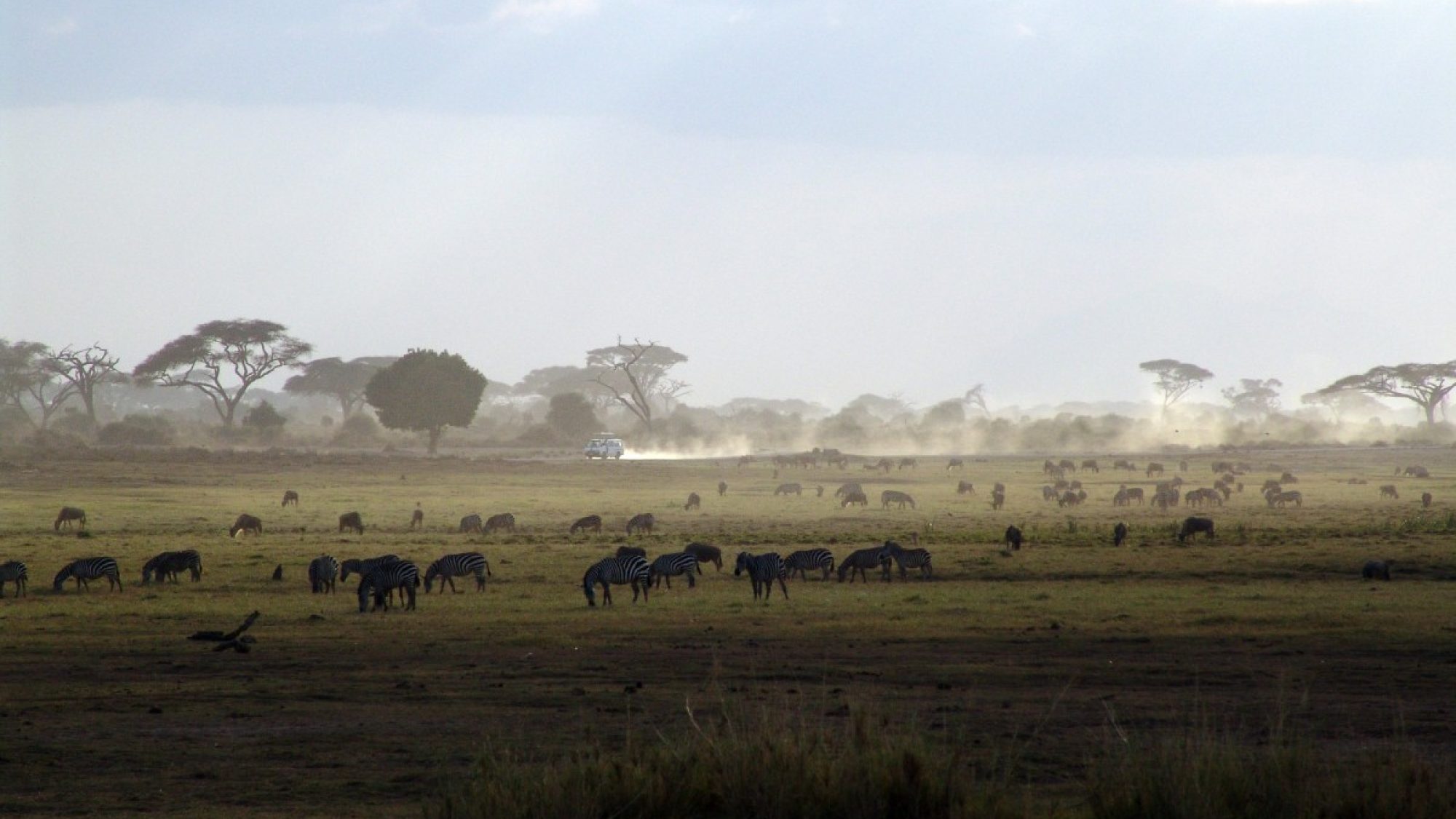
Title: African Environmental Philosophy, Injustice, and Policy
African environmental philosophy renounces anthropocentrism and promotes a holistic view of the world and life. Many African countries and communities face different instances of environmental injustice and demand environmental justice to empower the collective victims of such injustices. The management of natural resources in Africa should be participatory, inclusive of indigenous input, and community-based, which can only be accomplished through the creation of powerful globalized alliances and networks of solidarity based in the self-empowered institutions of the local people.
African Environmental Philosophy and Environmental Protection
Until recently, there were no printed works on African environmental ethics and philosophy. To date, very limited research has been done in these subjects and their implications for policy makers in Africa. Although each community has its own unique worldview, several doctrines, practices, and rituals are prevalent, justifying the concept of a generic African worldview. So, the term “African environmental Philosophy” is used to refer to the underlying common or shared environmental worldviews of the African people. African environmental philosophy was embedded in the worldviews of the African people. Various African and non-African writers have tried to reconstruct African environmental ethics from the worldviews of the African people since the 1990s. To mention but a few examples, the Oromo of Ethiopia, the Nso’ of the grassy highlands of Bamenda in Cameroon, Southern African countries that embrace ubuntu ethics, the Shona of Zimbabwe, the Igbo of Nigeria, the Yorùba of Nigeria and Benin, and the Kom of Cameroon have developed a holistic view of the world.
A brief discussion on Oromo environmental ethics and philosophy, and ubuntu ethics will further show how most Africans live amicably and in consonance with their natural environment. The Oromo of Ethiopia, the biggest ethnic group, have had restrained relations with nature and established greater harmony between themselves and their environment. The Oromo Gadaa system, and ecotheology provide a set of guidelines that have been instrumental in protecting the natural environment and the rights of human and nonhuman beings. The Gadaa system is a democratic egalitarian system that has its own leaders who conduct government of Oromo society for non-renewable eight-year term. The Oromo Gadaa general assembly makes political, social and environmental laws.
According to the Oromo, Waaqa, God, is the creator of all things. Ayyaana (spirit) is the manifestation of the one Waaqa. The Earth is considered as the caring mother of all and Waaqa is regarded as a father. Waaqa, Mother Earth, and Ayyaana are interconnected. Saffuu or ceeraa fokko, the ethical code, governs the relationship between different entities and use of natural resources. It insists that one ought not unnecessarily harm and overexploit fellow human beings and the natural environment. Different things have their own place and role in the cosmic and social order, and it would be wrong to upset the balance of eco-social relations. Saffuu recognizes balance, respect, and distance between various things. In Oromo thinking, a human being is a part and parcel of the natural environment and cannot undermine the existence of other creatures. Nonhuman animals, as species, have a right to exist and flourish on mother Earth whether they are useful or not. Hence, the Oromo conception of justice is extended to both human beings and nonhuman animals. The Oromo also oppose total destruction of a species. The Oromo environmental philosophy stresses that the indiscriminate destruction of species and individual animals and plants will threaten the survival and well-being of mother Earth and all of its inhabitants.
There are great lessons to be learned from traditional versions of Oromo environmental ethics and philosophy: the concern to preserve all species and the belief that domestic animals ought to be treated without cruelty; an ethic of preservation and production based on the fact that without production and transformation of nature, human life is unthinkable and that a healthy green environment is a sine qua non for the survival of all living things; the importance of a positive, rather than purely exploitative relationship with the environment; an appreciation of the Earth as the mother of life; intra- and intergenerational justice; environmental justice; etc.
Ubuntu societies have developed a similar view. The concept ubuntu (humanness) is found in different African languages. It is the idea that the self is defined in terms of relationships to others and that happiness and fulfillment are to be found within these relations. Personhood is relational, communitarian, and extended. Ubuntu ethics is concerned with the wellbeing of human beings and the physical nature.
However, some have argued that African worldviews are entirely anthropocentric. They have distorted ubuntu, denied its existence, or exclaimed its irrelevance. Yet, their view is not supported by credible evidence, nor have they conducted on-site visits to Africa to substantiate their claim. One should critically and carefully study the practices, beliefs, and views of the people before making generalizations about their worldview.
African environmental philosophy articulates the interconnectedness of all aspects of reality. It adopts a holistic rather than an atomistic perspective, as it recognizes the interdependence of humans, non-humans, and ecosystems. In an African worldview, human beings are in and part of a vibrant interconnected whole from which they cannot detach themselves. Land is not the private property of individuals, as it belongs to God and the community of living dead, the living, and the generation to come. Human beings are caretakers or stewards of the land, rather than its private owners. The current generation should leave the environment that is not poor in resources for future generations of both human, and nonhuman beings.
The African continent is home to many cultures that have developed complex, diverse, and long-lasting systems of participatory government. Such systems underscore the indelible responsibility of each citizen for the group as well as the individual and common responsibility for the natural environment. Rural communities have demonstrated a highly developed awareness of the local environment and processes of degradation in many ways, since they have had an intimate relationship with the natural environment. The culture of the ordinary people and their accumulated experience embody useful knowledge and techniques for environmental protection. The ecological principles and practices of the indigenous people of Africa have promoted sustainable resource management over a very long period of time. The indigenous people of Africa have also developed indigenous climate mitigation and adaptation strategies and have successfully dealt with the challenges of local weather and climate changes for hundreds of years.
Many African indigenous people have developed both practical and conceptual knowledge of their environment. Their knowledge is primarily based on long-term observations and experiments, as well as reasoned thought. They have developed deep-seated opinions about natural environment, society, and related social values. This philosophy directs their way of living. When they are affected by what is going on in society, they come up with profound proverbs which originate from their sober remarks. This is reflected by the metaphoric association of nature and society. The African indigenous people’s commitment to protect the natural environment stems from the fact that the natural environment has both instrumental and intrinsic values. They regard nature as sacred and divine. Rivers, streams, mountains, forests, trees, and rocks are believed to be the repository and dwelling places of spirits. In African ontology, the physical and spiritual constituents of reality are interdependent entities.
Limitations of and Challenges to Indigenous Knowledge
African indigenous knowledge has some limitations. Indigenous technology and practice are not universally applicable, but are locally grounded. Indigenous people do not have the intellectual resources to engage with global environmental problems created by capitalism, although they know that their current decisions and activities would have an impact for the foreseeable future. Thus, their knowledge should be complemented with scientific knowledge. Also, indigenous knowledge is not evenly distributed within and across communities. There has also been resistance to transmit and freely distribute specialized knowledge among indigenous communities. For instance, indigenous healers are unwilling to pass on their knowledge to all of their children and individuals outside their families. They only share medical knowledge with some of their children and trusted relatives who have good character and interest to preserve this knowledge.
There are many negative factors at play across Africa that severely threaten the maintenance and further development of indigenous environmental knowledge: modern education, market forces, the commercialization and privatization of knowledge, the loss of land, foreign religions, poverty, the government’s acculturation and assimilation policies, and the demise of native languages. In the name of “civilization,” Christian missionaries and Islamic religious leaders have sought to eradicate all vestiges of indigenous African metaphysical beliefs and religions. Moreover, different forms of environmental injustice have been committed in many African countries, including the disproportionate bearing of environmental hazards; exclusion of local people from decision-making processes; deprivation of individuals or groups of the rights to clean air, water, land and healthy environment; unethical and illegal toxic waste disposal; exportation of dirty industries and hazardous wastes to some African countries; lack of recognition; a critical lack of capabilities, at both the individual and group level; and the destruction of food security. Top-down imported development polices have aggravated social and environmental injustice in Africa. In addition, the 2007-2008 financial crisis and the subsequent great recession have encouraged some multinational companies and countries to come to Africa and lease large tracts of land by evicting indigenous communities from their land with little or no compensation. Corporate colonialism has drained local communities of their wealth, resources, and cultures. It has polluted with impunity the land, air, and waters of certain African countries with untold biodiversity loss. Domestic sewage, animal wastes, industrial wastes, and harmful chemicals have been discharged into surface water sources without proper treatment.
Africa’s Quest for Environmental Justice
Isolated indigenous people cannot defend their interests and combat environmental injustices they face. Thus, there is a need for the unification and construction of new or reconceptualized and restructured forms of social institutions specifically designed to address their current situation. Traditional institutions should be reconstituted to empower communities to formulate, articulate, and defend their modern interests and combat environmental injustice.
Peasant farmers should have the chance to come together, dialogue, and promote solutions to their own problems, such as organizing institutions that spread their risks. Through such self-empowering institutions, individual farmers are not put in a situation of risking everything but are freer to experiment with different technologies that, if successful, would benefit not only the individual farmer, but also the local farming community and even the global understanding of agriculture.
Conclusion
Although African environmental ethics and philosophy have the potential to contribute to environmental rehabilitation and development, biodiversity conservation and sustainable development, and climate change mitigation and adaption, African policy makers have neglected them. They have continued to use a top-down approach to implement their respective policies. African environmental and climate policies have not been guided by the major ethical principles embodied in different African traditions (interdependence and interconnectedness, mutual dependence, intra- and inter-generational justice, environmental justice, communitarianism, generosity, do no harm, reciprocity, promote life and avoid killing, a live and let live attitude, humanness, deep concern for future generations, etc.). It is imperative to critically examine and learn from African environmental philosophy and address the burgeoning environmental challenges in Africa. Environmental and development policy makers who ignore indigenous environmental philosophy can never achieve the success they desire. The custodians of environmentally friendly practices should be included in the formulation and implementation of environmental policies in Africa. Governments must be prevented from inadvertently undermining indigenous environmental knowledge in the pursuit of short-sighted development and economic goals. There is no government that can afford to ignore people who have become critically aware of their own interests and their local, national, regional, continental, and global situation. If there is awareness, the government and the people will respect one another. Indigenous people themselves must be encouraged and enabled to critically develop their own knowledge by overcoming negative tendencies within indigenous communities. The fact that indigenous knowledge is mostly untapped also shows that a lot has yet to be done in this area. Every traceable indigenous knowledge must be thoroughly studied for better application.
…
Workineh Kelbessa is Professor of Philosophy at Addis Ababa University, Ethiopia. Currently, he is a Visiting Africa Oxford Initiative (AfOx) Senior Research Fellow at the Oxford Uehiro Centre for Practical Ethics and the Faculty of Philosophy, University of Oxford, United Kingdom. His work focuses on environmental philosophy, African philosophy, development ethics, climate ethics, globalization, philosophy of love and sex, and indigenous knowledge. He thankfully acknowledges the support of the AfOx for this work.
Image Credit: Creative Commons 1.0 Universal; Pxhere
Recommended Articles

Africa accounts for approximately two percent of global air travel. Given the continent’s vast size and large distances between major trade hubs, enhancing intra-African air connectivity will be…

An estimated 7.9 million Venezuelans migrated abroad for the long term under President Nicolás Maduro’s rule as Venezuela’s political, economic, and social crises have deepened. Alongside rising Venezuelan migration, migrants…

Amid stalled U.S. federal climate engagement and intensifying transatlantic climate risks, subnational diplomacy has emerged as a resilient avenue for cooperation. This article proposes a Transatlantic Subnational Resilience Framework (TSRF)…